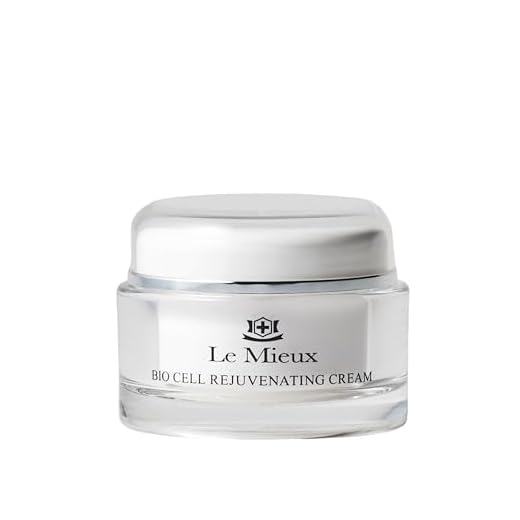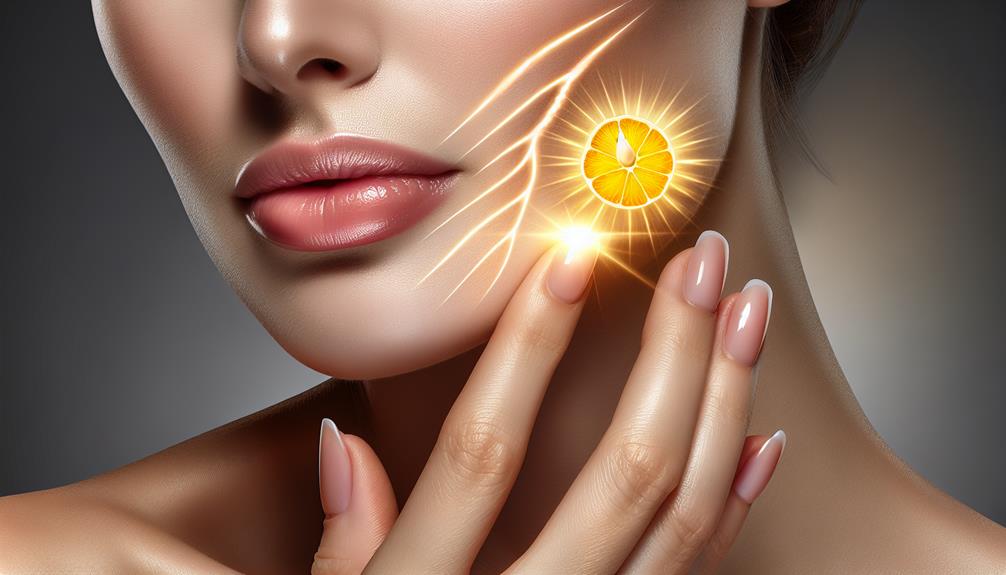







Boost your skin's health with Vitamin A – it aids in cell turnover, boosts collagen production, and defends against UV damage. These actions result in a revitalized, glowing complexion. Want to understand more about how Vitamin A transforms your skin?
Key Takeaways
- Supports collagen production for firm, youthful skin.
- Promotes cell turnover and regeneration for improved texture.
- Protects skin from UV damage through antioxidants.
- Reduces wrinkles, fine lines, and blemishes.
- Enhances overall skin health and appearance.
Importance of Vitamin A for Skin
When it comes to maintaining healthy skin, incorporating Vitamin A into your skincare routine is vital. Vitamin A plays an essential role in skin rejuvenation and cellular repair. Skin rejuvenation refers to the process of enhancing the skin's appearance, texture, and overall health. Vitamin A promotes cell turnover, which helps shed dead skin cells and allows new, healthy cells to surface. This process can result in smoother, more radiant skin.
Moreover, Vitamin A supports cellular repair by stimulating the production of collagen, a protein that provides structure and elasticity to the skin. Collagen is vital for maintaining skin firmness and preventing sagging and wrinkles. By promoting collagen synthesis, Vitamin A can help reduce the signs of aging and keep the skin looking youthful.
Incorporating Vitamin A into your skincare routine can help address various skin concerns, from fine lines and wrinkles to uneven skin tone and texture. Whether through topical creams, serums, or dietary sources, ensuring an adequate intake of Vitamin A is key to supporting healthy, vibrant skin.
Role in Collagen Production
To further understand the benefits of Vitamin A for skin health, exploring its significant role in collagen production is essential. Collagen is a protein that provides structure and elasticity to the skin, contributing to its firmness and youthful appearance. Vitamin A plays an important role in collagen synthesis, the process by which the body produces collagen. By promoting collagen production, Vitamin A helps maintain skin elasticity, preventing sagging and wrinkles associated with aging.
Studies have shown that Vitamin A stimulates fibroblasts, the cells responsible for producing collagen in the skin. By activating these cells, Vitamin A enhances collagen synthesis, leading to improved skin texture and resilience. Adequate levels of Vitamin A in the skin support the formation of strong collagen fibers, which are essential for maintaining skin firmness and elasticity.
Incorporating Vitamin A-rich foods or topical treatments into your skincare routine can help support collagen production, ultimately promoting healthier, more youthful-looking skin. Remember, maintaining optimal Vitamin A levels is key to supporting collagen production and preserving skin elasticity over time.
Skin Cell Regeneration

Skin cell regeneration is an essential process that contributes to the maintenance and repair of your skin's health and appearance. Vitamin A plays a significant role in this process by promoting cellular rejuvenation and regulating epidermal turnover. By enhancing these mechanisms, vitamin A supports the continuous renewal of skin cells, leading to dermatological benefits and rejuvenating effects on the skin.
Cellular rejuvenation, facilitated by vitamin A, helps in replacing old or damaged skin cells with new ones, improving the overall texture and tone of your skin. Additionally, vitamin A influences epidermal turnover, which is crucial for shedding dead skin cells and allowing fresh, healthy cells to surface. This turnover process aids in keeping your skin looking vibrant and youthful.
Incorporating vitamin A into your skincare routine can promote optimal skin cell regeneration, resulting in a smoother, more radiant complexion. By harnessing the dermatological benefits of vitamin A, you can enjoy its rejuvenating effects and support the long-term health of your skin.
Protection Against UV Damage
Prevention against UV damage is vital for preserving healthy skin and preventing premature aging. Vitamin A plays an important role in protecting the skin from harmful UV rays through its antioxidant properties. Antioxidants help neutralize free radicals generated by UV exposure, reducing oxidative stress and inflammation in the skin. This, in turn, helps prevent DNA damage, collagen degradation, and skin aging caused by the sun.
In addition to its antioxidant properties, Vitamin A supports skin health by enhancing sunscreen protection. When used in conjunction with sunscreen, Vitamin A can boost the skin's defense against UV radiation. It helps to reinforce the skin's natural barrier, making it more resilient to sun damage. By incorporating Vitamin A into your skincare routine and combining it with a broad-spectrum sunscreen, you can better shield your skin from the harmful effects of UV radiation, maintaining a youthful and healthy complexion.
Reduction of Wrinkles and Fine Lines

Enhance your skin's elasticity and smoothness by incorporating Vitamin A into your skincare routine to reduce wrinkles and fine lines effectively. Vitamin A, in the form of retinoids, plays an important role in promoting collagen production, which is essential for maintaining skin firmness and elasticity. By stimulating collagen synthesis, Vitamin A helps to improve the skin's texture, reducing the appearance of wrinkles and fine lines over time.
Furthermore, Vitamin A aids in maintaining ideal hydration levels in the skin. Proper hydration is essential for keeping the skin plump, reducing the visibility of fine lines and wrinkles. By supporting the skin's natural moisture barrier, Vitamin A helps to prevent water loss and maintain a healthy, youthful complexion.
Incorporating Vitamin A into your skincare regimen can lead to significant improvements in skin elasticity, texture, and overall appearance. Consult with a dermatologist to determine the most suitable form and concentration of Vitamin A for your skin type and concerns, ensuring maximum benefits in reducing wrinkles and fine lines.
Treatment of Acne and Blemishes
To effectively combat acne and blemishes, incorporating Vitamin A into your skincare routine can be highly advantageous. Vitamin A, also known as retinol, plays a vital role in treating acne due to its ability to promote cell turnover, prevent clogged pores, and reduce inflammation. This vitamin aids in scar healing by stimulating collagen production, which helps to repair and rejuvenate the skin, ultimately reducing the appearance of acne scars. Additionally, Vitamin A assists in oil control by regulating sebum production, which can help prevent new breakouts and minimize the size of existing blemishes.
When selecting skincare products containing Vitamin A for acne treatment, opt for retinoids such as retinol or prescription-strength retinoids like tretinoin for maximum effectiveness. It's important to start with lower concentrations to allow your skin to adjust gradually. Consistent use of Vitamin A products can lead to clearer, smoother skin with reduced acne and blemishes over time.
Overall Skin Health Benefits

Incorporating Vitamin A into your skincare routine can greatly improve overall skin health by promoting cell turnover, reducing inflammation, and aiding in scar healing. Vitamin A acts as a powerful antioxidant, protecting your skin from free radicals that can cause premature aging and damage. By neutralizing these free radicals, Vitamin A helps maintain the skin's structural integrity and youthful appearance. Additionally, Vitamin A promotes moisture retention in the skin by supporting the production of essential proteins like collagen and elastin, which are essential for keeping the skin hydrated and supple.
Furthermore, Vitamin A aids in reducing inflammation, making it beneficial for conditions like eczema, psoriasis, and rosacea. By calming the skin and minimizing redness, Vitamin A can improve overall skin tone and texture. Its ability to enhance cell turnover also contributes to a smoother complexion and a more even skin tone. Overall, incorporating Vitamin A into your skincare regimen can lead to healthier, more radiant skin with improved texture, hydration, and protection against environmental stressors.




